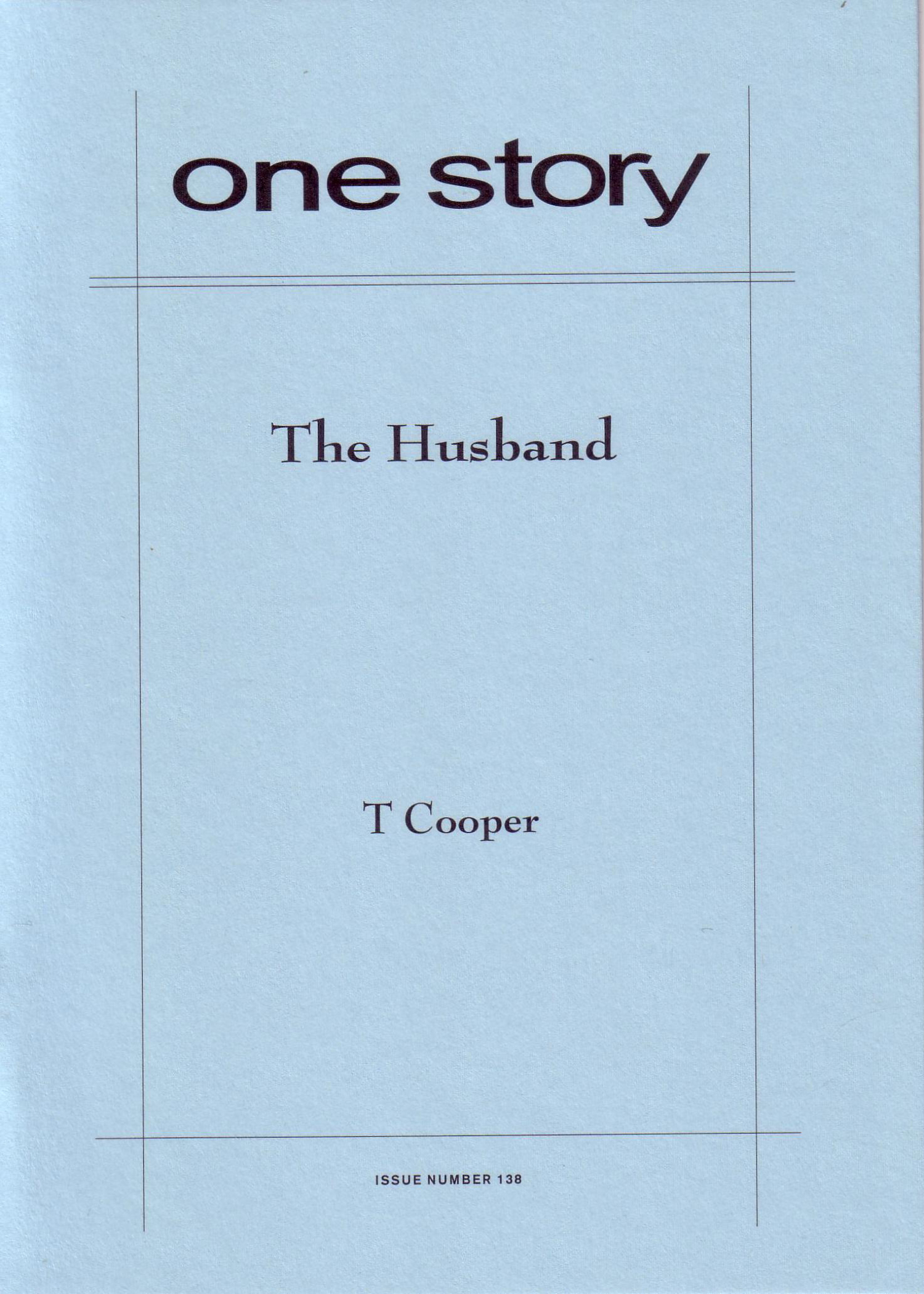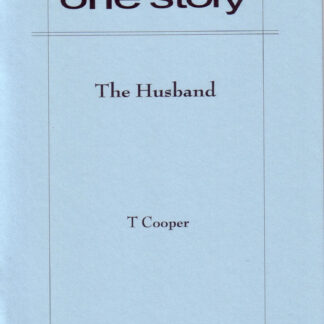
The Husband
30 in stock
Excerpt
So my daughter has become a son. She (or I suppose “he”?), is telling me this (again?), on the phone while I’m tucking in a white dress shirt and zipping up my fly before work. I’m late, and Gladys has probably already finished cleaning our first patient, who will be reclining there with the paper chain around his neck, flecks of gritty polish on his lips and cheeks, awaiting a final check up and futile suggestion from me that we snap a few X-rays before he goes.
“I miss Mom, too,” she says on a cell phone, walking somewhere.
“We aren’t talking about her,” I say. “I miss my daughter.”
“You can miss us both,” she says. “But only one of us actually died.”
T Cooper
T Cooper’s most recent book is a graphic novel entitled The Beaufort Diaries, the inspiring story of a polar bear who escapes extinction by going Hollywood. Cooper is also the author of two regular old novels, Lipshitz Six, or Two Angry Blondes and Some of the Parts, as well as co-editor of an anthology of short stories entitled A Fictional History of the United States with Huge Chunks Missing. Cooper’s fiction and nonfiction writing has appeared in a variety of publications, including The New Yorker, The New York Times, The Believer, and many others. He lives in New York with his family.
Q&A by Hannah Tinti
- HT: Where did the idea for this story come from?
- TC: Finding the balance point of Valise’s character. He was at first French, which didn’t seem right, and fleeing a broken relationship, which also didn’t seem right. It’s amazing the settling and shifting that goes on when we write our stories. It’s a long process of listening to what the story demands, trying something new, then seeing how it lays. I wish there was a linear path from A to B but usually you have to circle the mountain a few times.
- HT: What was the most challenging aspect of writing this story?
- TC:
- HT: Why did you choose to set the story in New York?
- TC:
- HT: Clothing figures prominently throughout your story, whether it is Daniel’s suits, his father’s uncomfortable undergarments, or the zipper on Delilah’s dress. Was this a conscious choice? And how do you think clothing affects your characters?
- TC:
- HT: In the last paragraph, Daniel’s father finally thinks of him as a “he,” instead of “she.” Why do you think he is able to do that in this moment?
- TC:
- HT: Can you tell us a little about the title?
- TC:
- HT: How long did it take you to complete this story?
- TC:
- HT: What are you working on now?
- TC:
- HT: What is the best bit of advice about writing you have ever received?
- TC:
